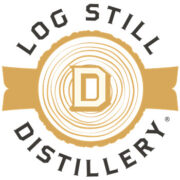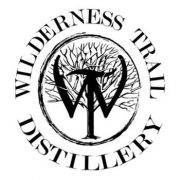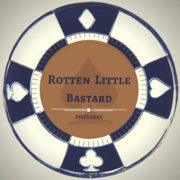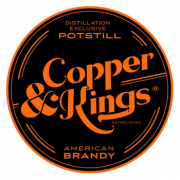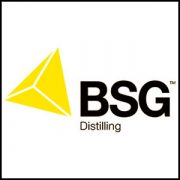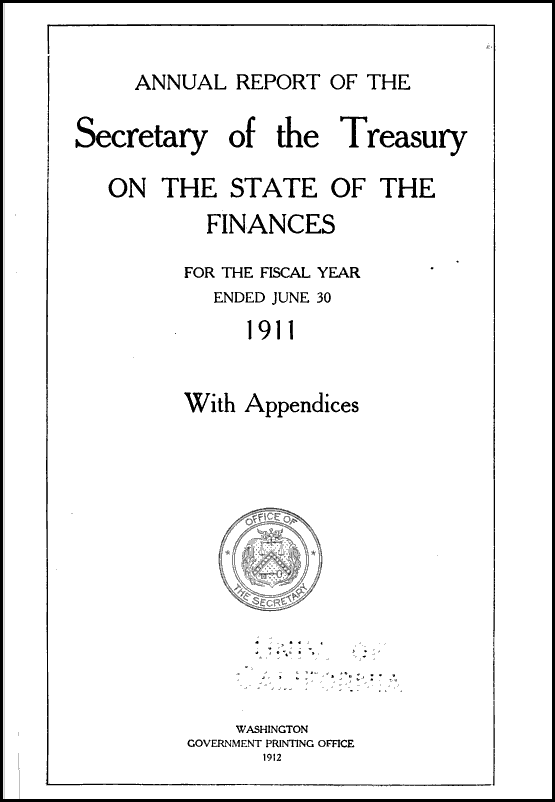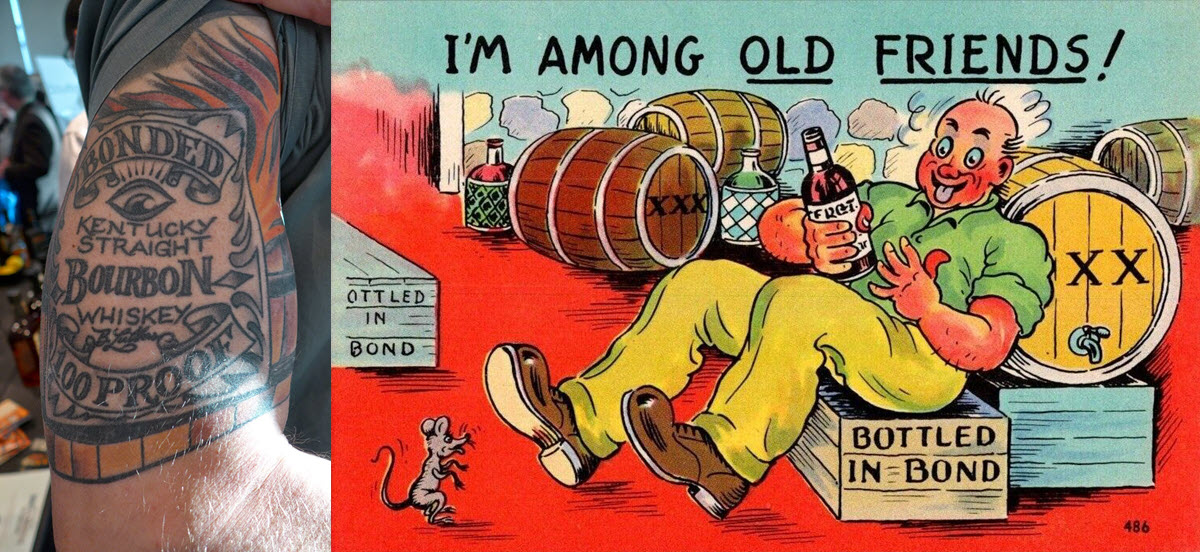
The Bottled-In-Bond Act was passed March 3, 1897 by the U.S. Federal Government. It wasn’t until about four years later in 1901 that the law officially went into effect. The law required spirits makers to age their spirits and label bottles according to a strict set of legal regulations. This law guaranteed consumers that what was advertised on the bottle was actually in the bottle. Prior to sealed bottles, it was not uncommon for unscrupulous re-sellers to add their own water or color to stretch out their supply of spirits. The law also helped with tax reporting since the government “revenuer” was tracking the inventory.
It took many years for the benefits of Bottled-in-Bond to catch on with consumers. It was up to the distilleries to educate the public. Some modern distillers use “Bottled-in-Bond” to help market their product while others that technically qualify choose not to label their product this way.
Stay Informed: Sign up here for our Distillery Trail free email newsletter and be the first to get all the latest news, trends, job listings and events in your inbox.
I’ll share both the short and the long definition. First, the short then, if you want more detail you can read on. If you still want more detail you can follow the link to the .gov website and learn more. There’s also a summary from a 1911 “Annual Report of the Secretary of the Treasury on the State of the Finances” that shares some insights on acceptance of the law and the growth in it’s reporting from distillers.
Bottled in Bond Act of 1897
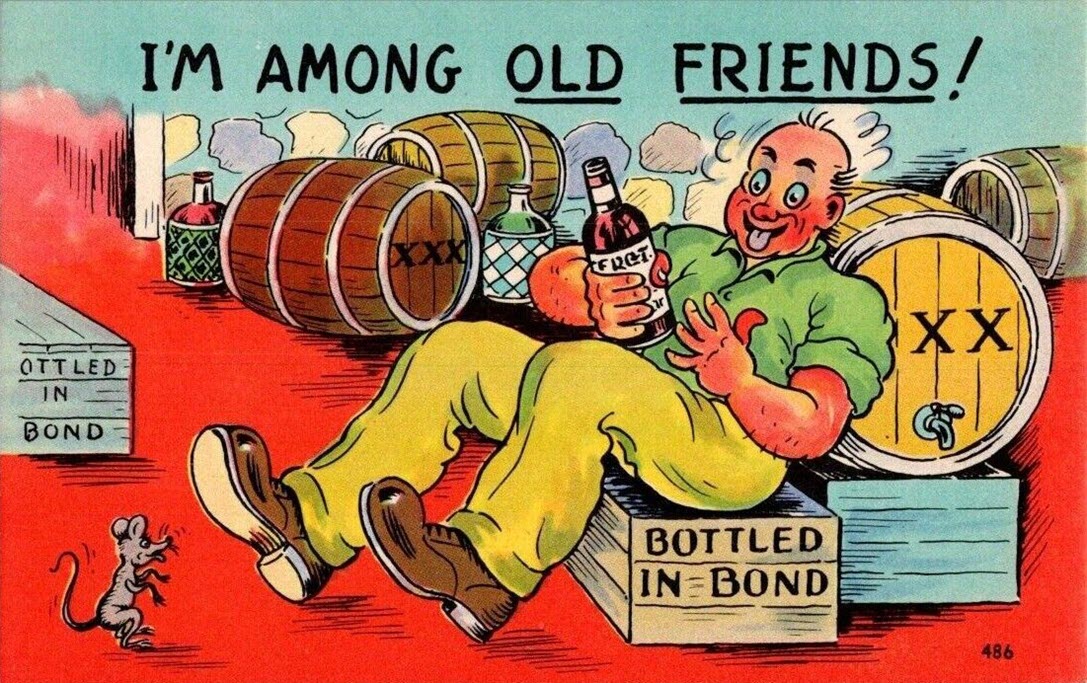
The words “bond”, “bonded”, “bottled in bond”, “aged in bond”, or phrases containing these or synonymous terms, shall not be used on any label or as part of the brand name of domestic distilled spirits unless the distilled spirits are:
- Composed of the same kind of spirits produced from the same class of materials
- Produced in the same distilling season by the same distiller at the same distillery. (Note: There are two distilling “Seasons” per year. “It being understood that the Spring season shall include the months from January to July, and the Fall season the months from July to December.)
- Stored for at least four years in wooden containers wherein the spirits have been in contact with the wood surface except for gin and vodka which must be stored for at least four years in wooden containers coated or lined with paraffin or other substance which will preclude contact of the spirits with the wood surface
- Unaltered from their original condition or character by the addition or subtraction of any substance other than by filtration, chill proofing, or other physical treatments (which do not involve the addition of any substance which will remain incorporated in the finished product or result in a change in class or type)
- Reduced in proof by the addition of pure water only to 100 degrees of proof (50% ABV); and
- Bottled at 100 degrees of proof.
In addition, the label shall bear the real name of the distillery or the trade name under which the distillery produced and warehoused the spirits, and the plant (or registered distillery) number in which produced; and the plant number in which bottled. The label may also bear the name or trade name of the bottler. Each bottle containing such spirits must have affixed thereto an adhesive engraved stamp, extending over the mouth of the bottle, showing the season of production, the date of bottles, the degree of proof and the name and district of the bona fide distiller of the spirits. Severe penalties are imposed by the act of reusing any stamp so affixed or for reusing any bottle so filled without first destroying the stamp affixed.
Full Text of the “Bottled-in-Bond Act of 1897”
Bottled in Bond Act.
Approved. March 3, 1897.
CHAP. 379.-An Act To allow the bottling of distilled spirits in bond. | Page 626.
Internal revenue. Bottling of distilled spirits in bond.
Be it enacted by the Senate and House of Representatives of the United States of America in Congress assembled, That whenever any distilled spirits deposited in the warehouse of a distillery having a surveyed daily capacity of not less than twenty bushels of grain, which capacity or not less than twenty bushels thereof is commonly used by the distiller, have been duly entered for withdrawal upon payment of tax, or for export in bond, and have been gauged and the required marks, brands, and tax-paid stamps or export stamps, as the case may be, have been affixed to the package or packages containing the same, the distiller or owner of said distilled spirits, if he has declared his purpose so to do in the entry for withdrawal, which entry for bottling purposes may be made by the owner as well as the distiller, may remove such spirits to a separate portion of said warehouse which shall be set apart and used exclusively for that purpose, and there, under the supervision of a United States storekeeper, or storekeeper and gauger, in charge of such warehouse, may immediately draw off such spirits, bottle pack, and case the same:
Provisos. Mingling of same spirits.
Provided, That for convenience in such process any number of packages of spirits of the same kind, differing only in proof, but produced at the same distillery by the same distiller, may be mingled together in a cistern provided for that purpose, but nothing herein shall authorize or permit any mingling of different products, or of the same products of different distilling seasons, or the addition or the subtraction of any substance or material or the application of any method or process to alter or change in any way the original condition or character of the product except as herein authorized;
Use of bottling room restricted.
nor shall there be at the same time in the bottling room of any bonded warehouse any spirits entered for withdrawal upon payment of the tax and any spirits entered for export:
Bottling fruit brandy.
Provided also, That under such regulations and limitations as the Commissioner of Internal Revenue, with the approval of the Secretary of the Treasury, may prescribe, the provisions of this Act may be made to apply to the bottling and casing of fruit brandy in special bonded warehouses.
Bottle stamps.
Every bottle when filled shall have affixed thereto and passing over the mouth of the same such suitable adhesive engraved strip stamp as may be prescribed, as hereinafter provided, and shall be packed into cases to contain six bottles or multiples thereof, and in the aggregate not less than two nor more than five gallons in each case, which shall be immediately removed from the distillery premises.
Stamps on cases.
Each of such cases shall have affixed thereto a stamp denoting the number of gallons therein contained, such stamp to be affixed to the case before its removal from the warehouse, and such stamps shall have a cash value of ten cents each, and shall be charged at that rate to the collectors to whom issued, and shall be paid for at that rate by the distiller or owner using the same.
Brands on cases.
And there shall be plainly burned on the side of each case, to be known as the Government side, the proof of the spirits, the registered distillery number, the State and district in which the distillery is located, the real name of the actual bona fide distiller, the year and distilling season, whether spring or fall, of original inspection or entry into bond, and the date of bottling, and the same wording shall be placed upon the adhesive engraved strip stamp over the mouth of the bottle. It being understood that the spring season shall include the months from January to July, and the fall season the months from July to January.
FIFTY-FOURTH CONGRESS. SESS.II. CH. 379. 1897. | Page 627.
Trademarks.
And no trade-marks shall be put upon any bottle unless the real name of the actual bona fide distiller shall also be placed conspicuously on said bottle.
Regulations.
SEC. 2. That the Commissioner of Internal Revenue, with the approval of the Secretary of the Treasury, may, by regulations, prescribe the mode of separating and securing the additional warehouse, or portion of the warehouse hereinbefore required to be set apart, the manner in which the business of bottling spirits in bond shall be carried on, the notices, bonds, and returns to be given and accounts and records to be kept by the persons conducting such business, the mode and time of inspection of such spirits, the accounts and records to be kept and returns made by the Government officers, and all such other matters and things, as in his discretion, he may deem requisite for a secure and orderly supervision of said business; and he may also, with the approval of the Secretary of the Treasury, prescribe and issue the stamps required.
Filtering, reducing, etc. permitted.
The distiller may, in the presence of the United States storekeeper or storekeeper and gauger, remove by straining through cloth, felt, or other like material any charcoal, sediment, or other like substance found therein, and may whenever necessary reduce such spirits as are withdrawn for bottling purposes by the addition of pure water only to one hundred per centum proof for spirits for domestic use, or to not less than eighty per centum proof for spirits for export purposes, under such rules and regulations as may be prescribed by the Commissioner of Internal Revenue with the approval of the Secretary of the Treasury;
Regauging. Vol.28,p. 564.
and no spirits shall be withdrawn for bottling under this Act until after the period shall have expired within which a distiller may request a regauge of distilled spirits as provided in section fifty of the Act of August twenty-eighth, eighteen hundred and ninety-four.
Inspection, etc., of spirits bottled for export.
SEC. 3. That all distilled spirits intended for export under the provisions of this Act shall be inspected, bottled, cased, weighed, marked, labeled, stamped, or sealed in such manner and at such time as the Commissioner of Internal Revenue may prescribe; and the said Commissioner, with the approval of the Secretary of the Treasury, may provide such regulations for the transportation, entry, reinspection, and lading of such spirits for export as may from time to time be deemed necessary; and all provisions of existing law relating to the exportation of distilled spirits in bond, so far as applicable, and all penalties therein imposed, are hereby extended and made applicable to distilled spirits bottled for export under the provisions of this Act,
No drawbacks.
but no drawbacks shall be allowed or paid upon any spirits bottled under this Act.
Tax to be paid on deficiency.
SEC. 4. That where, upon inspection at the bonded warehouse in which the spirits are bottled as aforesaid, the quantity so bottled and cased for export is less than the quantity actually contained in the distiller’s original casks or packages at the time of withdrawal for that purpose the tax on the loss or deficiency so ascertained shall be paid before the removal of the spirits from such warehouse, and the tax so paid shall be receipted and accounted for by the collector in such manner as the Commissioner of Internal Revenue may prescribe.
Tax to be collected if export cases are opened, changed, etc.
SEC. 5. That where, upon reinspection at the port of entry, any case if export cases are containing or purporting to contain distilled spirits for export is found opened, changed, etc. to have been opened or tampered with, or where any mark, brand, stamp, label, or seal placed thereon or upon any bottle contained therein has been removed, changed, or willfully defaced, or where upon such reinspection any loss or discrepancy is found to exist as to the contents of any case so entered for export, the tax on the spirits contained in each such case at the time of its removal from warehouse shall be collected and paid.
Punishment for reusing stamps, bottles, regulations.
SEC. 6. That any person who shall reuse any stamp provided under this Act after the same shall have been once affixed to a bottle as provided herein, or who shall reuse a bottle for the purpose of containing distilled spirits which has once been filled and stamped under the provisions of this Act without removing and destroying the stamp so
FIFTY-FOURTH CONGRESS SESS. II. CHS. 379-381. 1897. | Page 628.
previously affixed to such bottle, or who shall, contrary to the provisions of this Act or of the regulations issued thereunder remove or cause to be removed from any bonded warehouse any distilled spirits inspected or bottled under the provisions of this Act, or who shall bottle or case any such spirits in violation of this Act or of any regulation issued thereunder, or who shall, during the transportation and before the exportation of any such spirits, open or cause to be opened any case or bottle containing such spirits, or who shall willfully remove, change, or deface any stamp, brand, label, or seal affixed to any such case or to any bottle contained therein, shall for each such offense be fined not less than one hundred nor more than one thousand dollars, and be imprisoned not more than two years, in the discretion of the court, and such spirits shall be forfeited to the United States.
Punishment for counterfeiting stamp, etc.
SEC. 7. That every person who, with intent to defraud, falsely makes, forges, alters, or counterfeits any stamp made or used under any provision of this Act, or who uses, sells, or has in his possession any such forged, altered, or counterfeited stamp, or any plate or die used or which may be used in the manufacture thereof, or who shall make, use, sell, or have in his possession any paper in imitation of the paper used in the manufacture of any stamp required by this Act, shall on conviction be punished by a fine not exceeding one thousand dollars and by imprisonment at hard labor not exceeding five years.
No exemption from State, etc., laws. Vol. 26, P. 313.
SEC. 8. That nothing in this Act shall be construed to exempt spirits bottled under the provisions of this Act from the operation of chapter seven hundred and twenty-eight of the public laws of the Fifty-first Congress, approved August eighth, eighteen hundred and ninety.
Approved, March 3,1897.
Here’s a copy of the actual law from March 3, 1897.

1911 Report of the Commissioner of the Internal Revenue
After passing in 1897 it took several years for distillers to react to the new law. Here is an official report from the IRS that shows how many gallons of spirits were placed in bond in the first 14 years of the Act. It is not a complete picture year by year but it does give an idea how long it took for the industry to catch up with the law.
REPORT OF THE COMMISSIONER OF INTERNAL REVENUE.
BOTTLED-IN-BOND SPIRITS.
During the past fiscal year 10,631,091.5 gallons of distilled spirits on which the tax had been paid were bottled in bond at distilleries. This quantity, which represents about 8 per cent of the entire quantity or potable spirits tax-paid at distilleries during that year, exceeds the quantity of like spirits bottled in bond during the fiscal year 1910 by 1,045,332.1 gallons.
Under the bottling-in-bond act, approved March 3, 1897, spirits eligible for bottling in bond must have remained in bonded warehouse for a period not less than four years; must be bottled under the immediate supervision of a Government officer; must be of a proof (for domestic use) of not less than 100°; and each bottle containing such spirits must have affixed thereto an adhesive engraved stamp, extending over the mouth of the bottle, showing the season of production, the date of bottling, the degree of proof, and the name and district of the bona fide distiller of the spirits. Severe penalties are imposed by the act for reusing any stamp so affixed or for reusing any bottle so filled without first destroying the stamp affixed thereto.
During the first five years following the passage of this act less than 1 per cent of the potable spirits withdrawn on payment of tax was bottled in bond, the largest quantity (535,535.9 gallons) having been bottled during the first fiscal year, 1898. During subsequent years, however, there has been a steady and a very noticeable increase in withdrawal of spirits for this purpose.
There has also been a noticeable increase during the past three years in the quantity of spirits bottled in bond free of tax for export, the quantity so bottled during the fiscal years 1909, 1910, and 1911 being, respectively 24,339.4, 30,461.5, and 41,188.1 gallons.
Here’s the actual Bottled-in-Bond excerpt from the “Annual Report of the Secretary of the Treasury on the State of Finances for the fiscal year ended June 30, 1911“.
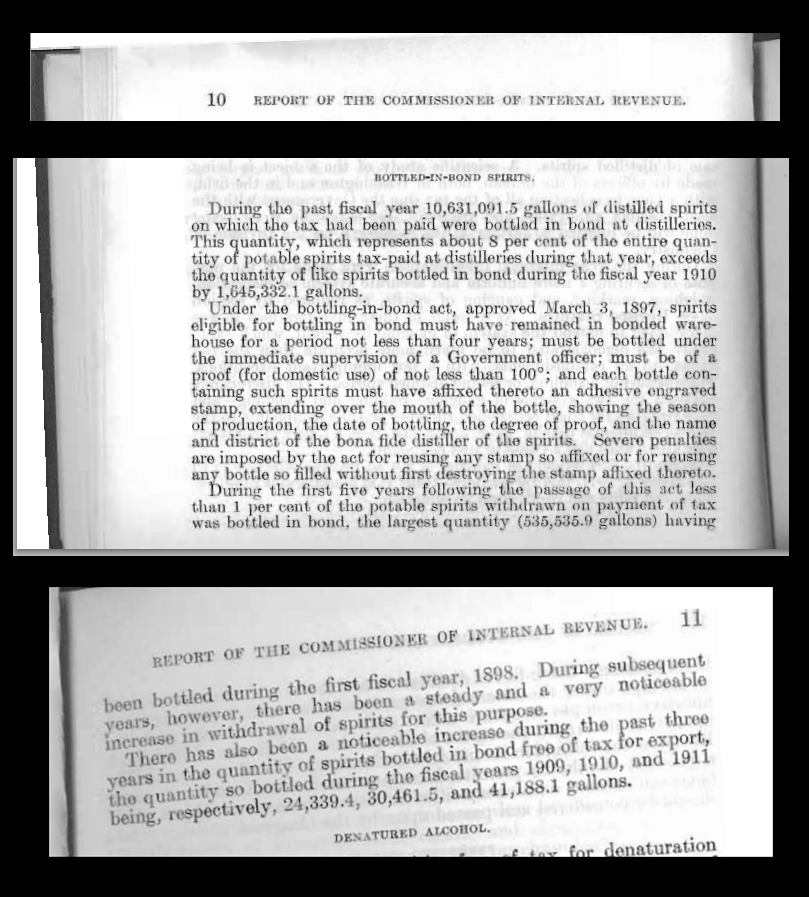
Here’s more detail as provided by the U.S. Government Publishing Office. Click the link if you still want more details.
§5.42 Prohibited practices.
(a) Statements on labels. Bottles containing distilled spirits, or any labels on such bottles, or any individual covering, carton, or other container of such bottles used for sale at retail, or any written, printed, graphic, or other matter accompanying such bottles to the consumer shall not contain:
(1) Any statement that is false or untrue in any particular, or that, irrespective of falsity, directly, or by ambiguity, omission, or inference, or by the addition of irrelevant, scientific or technical matter, tends to create a misleading impression.
(2) Any statement that is disparaging of a competitor’s product.
(3) Any statement, design, device, or representation which is obscene or indecent.
(4) Any statement, design, device, or representation of or relating to analyses, standards, or tests, irrespective of falsity, which the appropriate TTB officer finds to be likely to mislead the consumer.
(5) Any statement, design, device, or representation of or relating to any guarantee, irrespective of falsity, which the appropriate TTB officer finds to be likely to mislead the consumer. Money-back guarantees are not prohibited.
(6) A trade or brand name that is the name of any living individual of public prominence, or existing private or public organization, or is a name that is in simulation or is an abbreviation thereof, or any graphic, pictorial, or emblematic representation of any such individual or organization, if the use of such name or representation is likely to falsely lead the consumer to believe that the product has been endorsed, made, or used by, or produced for, or under the supervision of, or in accordance with the specifications of, such individual or organization: Provided, That this paragraph shall not apply to the use of the name of any person engaged in business as a distiller, rectifier, blender, or other producer, or as an importer, wholesaler, retailer, bottler, or warehouseman, of distilled spirits, nor to the use by any person of a trade or brand name that is the name of any living individual of public prominence or existing private or public organization, provided such trade or brand name was used by him or his predecessors in interest prior to August 29, 1935.
(b) Miscellaneous. (1) Labels shall not be of such design as to resemble or simulate a stamp of the U.S. Government or any State or foreign government. Labels, other than stamps authorized or required by this or any other government, shall not state or indicate that the distilled spirits are distilled, blended, made, bottled, or sold under, or in accordance with, any municipal, State, Federal, or foreign authorization, law, or regulations, unless such statement is required or specifically authorized by Federal, State, municipal, or foreign law or regulations. The statements authorized by this part to appear on labels for domestic distilled spirits are “Distilled (produced, barreled, warehoused, blended, or bottled, or any combination thereof, as the case may be) under United States (U.S.) Government supervision”, or in the case of distilled spirits labeled as bottled in bond, “Bottled in bond under United States (U.S.) Government supervision”. If the municipal, State, or Federal Government permit number is stated on a label, it shall not be accompanied by any additional statement relating thereto.
(2) If imported distilled spirits are covered by a certificate of origin or of age issued by a duly authorized official of the appropriate foreign government, the label, except where prohibited by the foreign government, may refer to such certificate or the fact of such certification, but shall not be accompanied by any additional statement relating thereto. The reference to such certificate or certification shall, in the case of Cognac, be substantially in the following form: “This product accompanied at the time of importation by an ‘Acquit Regional Jaune d’Or’ issued by the French Government, indicating that this grape brandy was distilled in the Cognac Region of France”; and in the case of other distilled spirits, substantially in the following form: “This product accompanied at time of importation by a certificate issued by the __ government (name of government) indicating that the product is __ (class and type as required to be stated on the label), and (if label claims age) that none of the distilled spirits are of an age less than stated on this label.”
(3) The words “bond”, “bonded”, “bottled in bond”, “aged in bond”, or phrases containing these or synonymous terms, shall not be used on any label or as part of the brand name of domestic distilled spirits unless the distilled spirits are:
(i) Composed of the same kind of spirits produced from the same class of materials;
(ii) Produced in the same distilling season by the same distiller at the same distillery;
(iii) Stored for at least four years in wooden containers wherein the spirits have been in contact with the wood surface except for gin and vodka which must be stored for at least four years in wooden containers coated or lined with paraffin or other substance which will preclude contact of the spirits with the wood surface;
(iv) Unaltered from their original condition or character by the addition or subtraction of any substance other than by filtration, chill proofing, or other physical treatments (which do not involve the addition of any substance which will remain incorporated in the finished product or result in a change in class or type);
(v) Reduced in proof by the addition of pure water only to 100 degrees of proof; and
(vi) Bottles at 100 degrees of proof.
In addition to the requirements of §5.36(a) (1) or (2), the label shall bear the real name of the distillery or the trade name under which the distillery produced and warehoused the spirits, and the plant (or registered distillery) number in which produced; and the plant number in which bottled. The label may also bear the name or trade name of the bottler.
(4) The words “bond”, “bonded”, “bottled in bond”, “aged in bond”, or phrases containing these or synonymous terms, shall not be used on any label or as part of the brand name of imported distilled spirits unless the distilled spirits meet in all respects the requirements applicable to distilled spirits bottled for domestic consumption, so labeled, and unless the laws and regulations of the country in which such distilled spirits are produced authorize the bottling of distilled spirits in bond and require or specifically authorize such distilled spirits to be so labeled. All spirits labeled as “bonded”, “bottled in bond”, or “aged in bond” pursuant to the provisions of this paragraph shall bear in direct conjunction with such statement and in script, type, or printing substantially as conspicuous as that used on such statement, the name of the country under whose laws and regulations such distilled spirits were so bottled.
(5) The word “pure” shall not be stated upon labels unless:
(i) It refers to a particular ingredient used in the production of the distilled spirits, and is a truthful representation about that ingredient; or
(ii) It is part of the bona fide name of a permittee or retailer for whom the distilled spirits are bottled; or
(iii) It is part of the bona fide name of the permittee who bottled the distilled spirits.
Related Story
Bottled in Bond Act Signed Into Law March 3, 1897 – The Law Explained by Fred Minnick & Bernie Lubbers [Video] Note: That is Bernie Lubbers Bottled-in-Bond bicep tattoo in the cover image. #StayBonded
Cover image courtesy of a post card that was up for sale on Bidstart.
Please help to support Distillery Trail. Sign up for our Newsletter, like us on Facebook and follow us on Instagram and Twitter.

